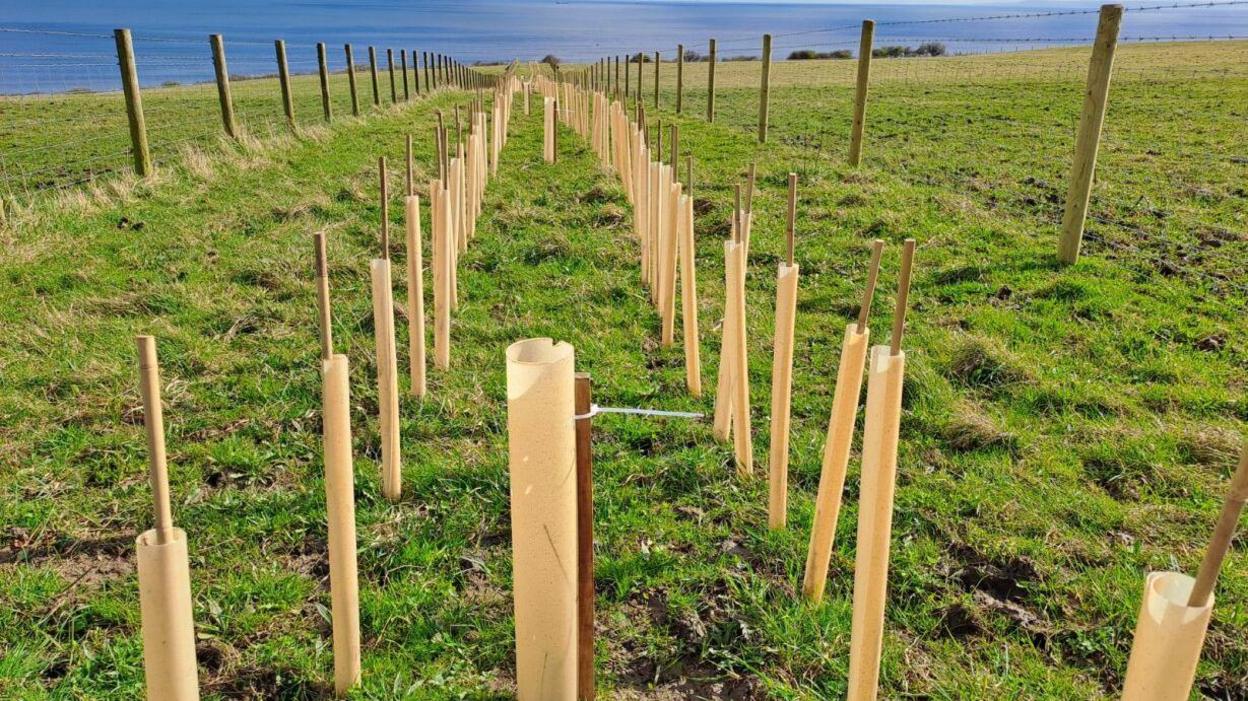More than five miles of hedgerows planted

The National Trust-led project was completed this week
- Published
More than five miles of hedgerows have been planted to help protect wildlife including birds and butterflies.
The hedgerows can be found at two sites in Easington and Horden, close to the Durham coast.
The 18-month project led by the National Trust finished on Tuesday.
āHaving more trees in the landscape in the right place provides a better habitat for wildlife,ā the trust's Eric Wilton said.
Hedgerows play a key role for many types of wildlife, but numbers had dropped due to changing farming practices.
āThereās been a move to bigger fields to make it easier for farming,ā Mr Wilton said.
This Ā£300,000 project comprising over 40,000 plants at White Lea Farm in Easington and Cosford Fields in Horden aims to increase hedgerow numbers in the region.
It will provide food and shelter for birds such as sparrows and yellowhammers, Mr Wilton explained.
āCaterpillars will also be able to use the hedge to feed off leaves and grow into butterflies,ā he said.
āItās creating space for a whole ecosystem to flourish."
The plants, which have been fenced off to offer additional protection from rabbits and deer, connect the two sites and provide a āwildlife corridorā for animals to move through.
Follow “óĻó“«Ć½ North East on , and . Send your story ideas to northeastandcumbria@bbc.co.uk.
More stories from “óĻó“«Ć½ North East and Cumbria
- Published1 March